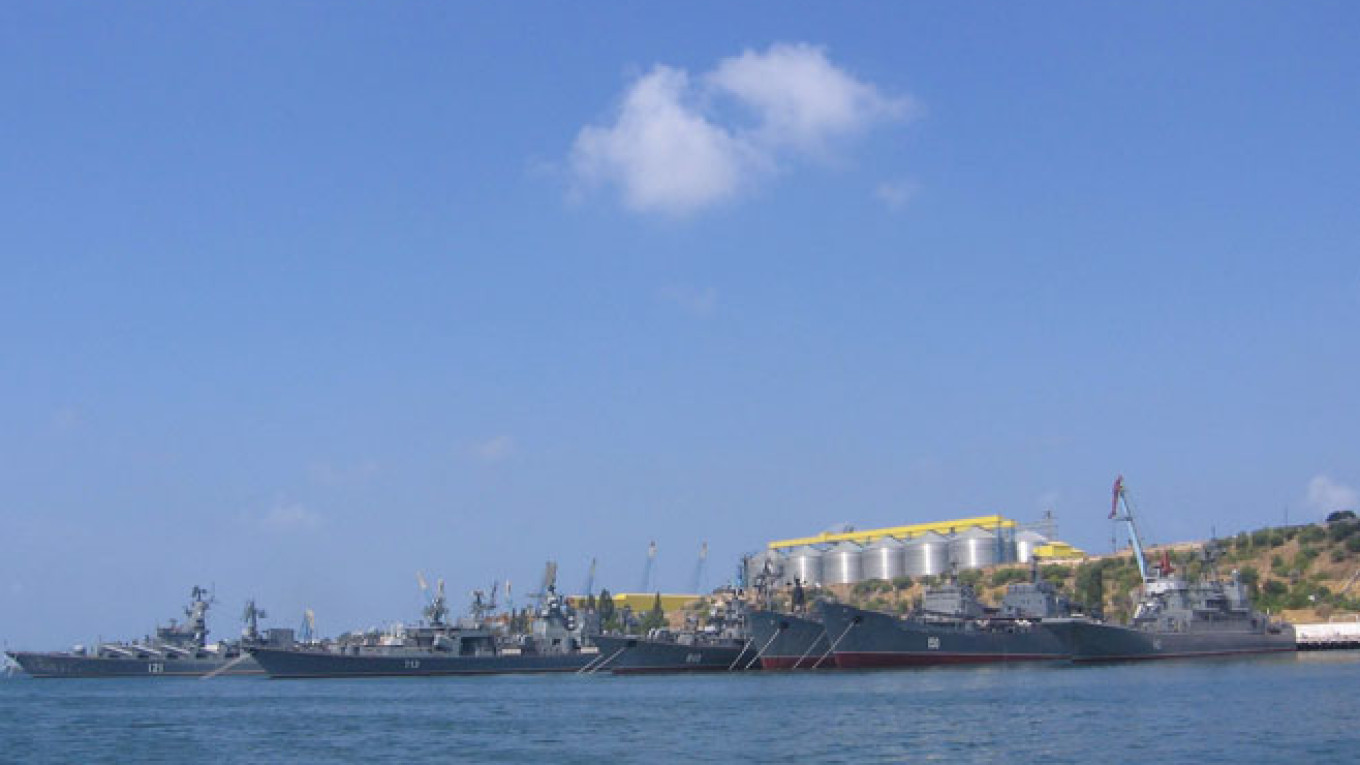The $40 billion discount on Russian gas purchases the Yanukovych government agreed with Moscow is likely to vaporize if Crimea secedes from Ukraine, leaving Kiev with the urgent need to pay its bill using internationally provided funds or face an industrial collapse.
The Kremlin is likely to tear up the agreement, which was signed in April 2010 and secured it a long-term lease on the Sevastopol naval base in exchange for the discount, if Crimea joins Russia, in a redrawing of the world map that seems highly plausible.
A higher gas bill could bring entire Ukrainian industries to a standstill and suck up much of the billions of dollars and euros in Western aid promised to Kiev.
"The possibility of this is quite high," Mikhail Korchemkin, director of U.S.-based firm East European Gas Analysis said about the potential cancellation of the agreement and its effects.
The deal now appears to be a time bomb that could go off as soon as Kiev loses its hold of Crimea, sparing Russia the need to honor the agreement.
Another U.S.-based analyst said this time bomb, if it detonates, would be a surprise for the Western policy makers that are discussing ways to prop up the new Ukrainian government after a popular uprising ousted pro-Russian President Viktor Yanukovych last month.
"I am not sure this has been factored in," she said, speaking on the condition of anonymity because of company policy. "The U.S. and the European Union would have to think about how this goes forward and how they help Ukraine."
The EU has pledged 11 billion euros ($15 billion) to support a Ukraine that is teetering on the brink of economic collapse following Yanukovych's rule.
Russia's expensive gas has also been taking a toll on the Ukrainian economy. Gazprom has already retracted the additional discount it gave Ukraine in December, bumping up the price to $370 per 1,000 cubic meters of gas starting in April.
That discount was widely seen as a reward to Yanukovych for backing out of an agreement in November to build closer ties with the EU.
An annulment of the 2010 agreement would increase the price by at least another $100 per 1,000 cubic meters, starting anytime from April onward, said Valentin Zemlyansky, an independent gas industry analyst in Kiev. That would shut down the country's chemical and cement industries, which heavily rely on natural gas in their manufacturing, he said.
Kiev could run an additional expense of $1 billion to $2 billion for Russian gas this year alone if this scenario plays out, based on Ukraine's expected annual imports of 30 billion cubic meters of the fuel.
Ukraine's state gas company Naftogaz could retaliate by taking the matter to an international commercial court in an effort to prove that the price is unfounded, considering market conditions, Zemlyansky and Korchemkin said.
Andrew Neff, an analyst with London-based research firm IHS, suggested that Gazprom could then take Naftogaz to the same court to seek a penalty for not buying as much gas as it committed to. The penalty could amount to $15 billion for 2012 and 2013, he said.
In addition, Naftogaz owes Gazprom close to $2 billion for past deliveries.
The 2010 accord gave Ukraine 30 percent off the price it previously paid. Freshly elected as president, Yanukovych won the discount by extending Russia's lease of the base in Sevastopol to 2042.
He said at the time that Ukraine would save $40 billion over the timeframe of the deal, which expires in 2019.
Crimea currently has no external links to its gas supply network. In an ironic twist, if the peninsula becomes independent or joins Russia, it will find itself in the same position as the EU: dependant on Ukraine successfully and willfully supplying Russian gas through its transit network — a predicament which could strengthen Kiev's hand in any future gas-related trade talks.
Contact the author at medetsky@imedia.ru
A Message from The Moscow Times:
Dear readers,
We are facing unprecedented challenges. Russia's Prosecutor General's Office has designated The Moscow Times as an "undesirable" organization, criminalizing our work and putting our staff at risk of prosecution. This follows our earlier unjust labeling as a "foreign agent."
These actions are direct attempts to silence independent journalism in Russia. The authorities claim our work "discredits the decisions of the Russian leadership." We see things differently: we strive to provide accurate, unbiased reporting on Russia.
We, the journalists of The Moscow Times, refuse to be silenced. But to continue our work, we need your help.
Your support, no matter how small, makes a world of difference. If you can, please support us monthly starting from just $2. It's quick to set up, and every contribution makes a significant impact.
By supporting The Moscow Times, you're defending open, independent journalism in the face of repression. Thank you for standing with us.
Remind me later.


